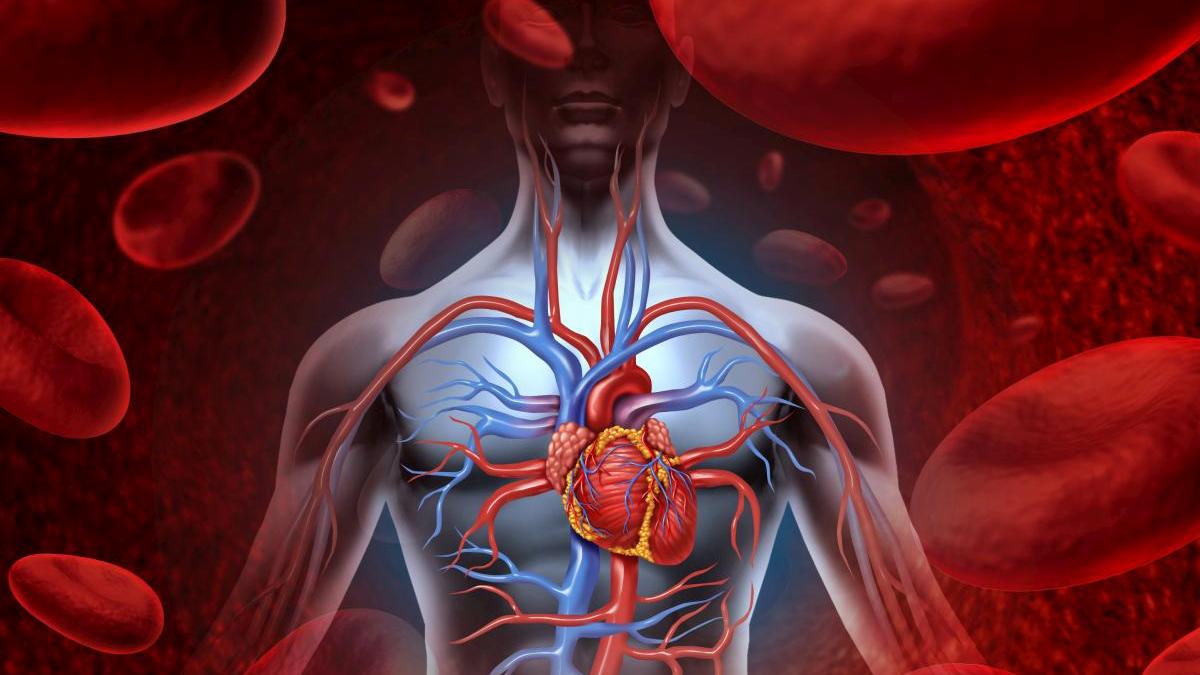Patients with diabetes are at higher risk of heart disease, which is also called cardiovascular or coronary artery disease and can lead to heart attacks and strokes. Cardiovascular disease affects your blood circulation. When circulation is disrupted, other diabetes complications, like problems with eyes and feet, can get worse.
Elevated blood sugar levels can damage blood vessels over time, which leads to various cardiovascular complications. It happens because your body is not able to use all of the sugar properly and starts to accumulate it. This build-up can damage and block the vessels carrying blood around the body. It may lead to oxygen and nutrients deprivation of the brain, heart, or other organs. Eventually, it can cause a heart attack, stroke, or other severe complications. Therefore, keeping your blood sugar levels under control is essential for protecting your blood vessels and improving your health.
In addition to blood sugar levels, the vessels can be damaged by high cholesterol in the blood. If it is too high, extra fat in your blood sticks to the walls of the blood vessels. Over time, this fat accumulates and hardens, forming plaques that block the blood vessels, making the space narrower and leaving less room for blood to flow. This condition is called atherosclerosis and is the most common cause of a heart attack.
Narrow space slows down the blood flow and lets some of the blood cells group together and clot. If a blood clot breaks away, it can travel through the arteries and veins until it reaches a point where it cannot pass through, so it partially or completely blocks the vessel. It can also lead to the starvation of essential organs and cause a heart attack or a stroke.
Moreover, atherosclerosis makes the walls of blood vessels more rigid and less elastic with time. It can lead to high blood pressure (also called hypertension). High blood pressure, together with increased cholesterol and blood sugar levels, puts a lot of stress on the blood vessels. All that affects the ability of blood to circulate throughout the body.
Chest pain or pain when walking are the symptoms of a heart attack, and weakness in your face or arm or slurred speech are characteristic of stroke. If you notice any of these signs, you should immediately call the ambulance.
The good thing is that you can reduce the risks of severe complications. To do so, you need:
- regular (at least once a year) diabetes check-up, which includes measuring blood sugar/cholesterol levels and blood pressure;
- consultation with your healthcare team to keep your numbers within target range;
- quit smoking because it makes it harder for blood to flow around the vital parts of your body;
- healthy, balanced diet (start by cutting down on salt);
- physical activity;
- a healthy weight that will reduce the strain on your body;
- medications, if prescribed.
More details:
Prediabetes and measures of prophylaxis
Differences between type 1 and type 2 diabetes
Causes, mechanisms of the disease development and symptoms (Diabetes mellitus type 1)
Causes, mechanisms of the disease development and symptoms (Diabetes mellitus type 2)
















Leave a Reply
You must be logged in to post a comment.